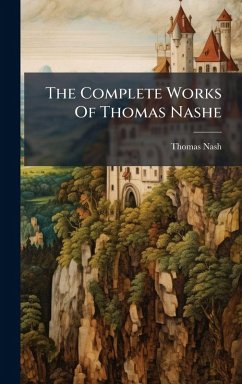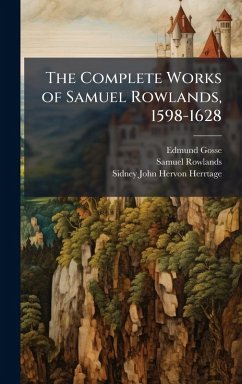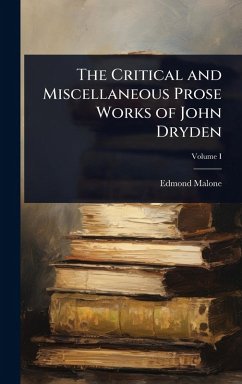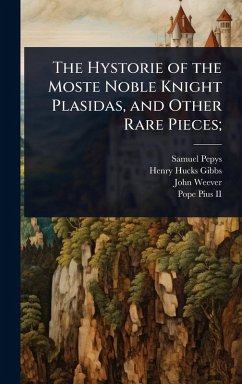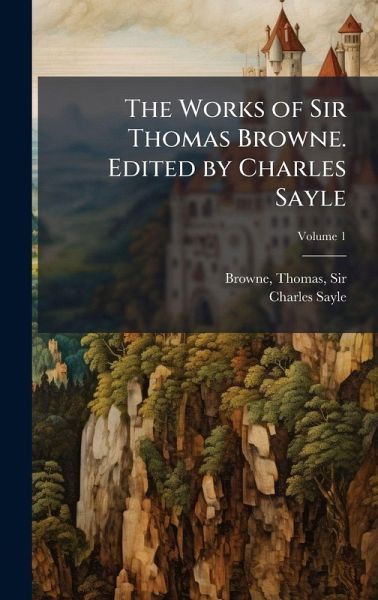
The Works of Sir Thomas Browne. Edited by Charles Sayle
Versandkostenfrei!
Versandfertig in über 4 Wochen
36,99 €
inkl. MwSt.
Weitere Ausgaben:

PAYBACK Punkte
18 °P sammeln!
This volume contains the writings of Sir Thomas Browne, a significant figure in 17th-century English literature. Known for his intricate prose style and wide-ranging intellectual curiosity, Browne's works explore themes of science, religion, and philosophy. This collection offers readers a glimpse into the mind of a physician and scholar grappling with the complexities of his era. Edited by Charles Sayle, this edition aims to present Browne's work in an accessible and scholarly manner. This work has been selected by scholars as being culturally important, and is part of the knowledge base of c...
This volume contains the writings of Sir Thomas Browne, a significant figure in 17th-century English literature. Known for his intricate prose style and wide-ranging intellectual curiosity, Browne's works explore themes of science, religion, and philosophy. This collection offers readers a glimpse into the mind of a physician and scholar grappling with the complexities of his era. Edited by Charles Sayle, this edition aims to present Browne's work in an accessible and scholarly manner. This work has been selected by scholars as being culturally important, and is part of the knowledge base of civilization as we know it. This work was reproduced from the original artifact, and remains as true to the original work as possible. Therefore, you will see the original copyright references, library stamps (as most of these works have been housed in our most important libraries around the world), and other notations in the work. This work is in the public domain in the United States of America, and possibly other nations. Within the United States, you may freely copy and distribute this work, as no entity (individual or corporate) has a copyright on the body of the work. As a reproduction of a historical artifact, this work may contain missing or blurred pages, poor pictures, errant marks, etc. Scholars believe, and we concur, that this work is important enough to be preserved, reproduced, and made generally available to the public. We appreciate your support of the preservation process, and thank you for being an important part of keeping this knowledge alive and relevant.



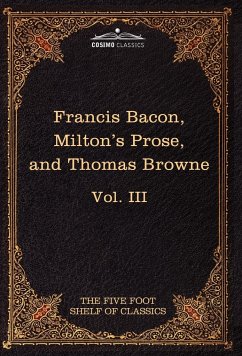
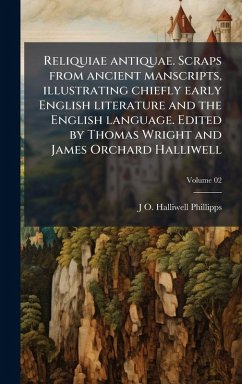

![Le Morte Arthur. The Adventures Of Sir Launcelot Du Lake, [ed. By T. Ponton] Cover Le Morte Arthur. The Adventures Of Sir Launcelot Du Lake, [ed. By T. Ponton]](https://bilder.buecher.de/produkte/74/74951/74951236n.jpg)
